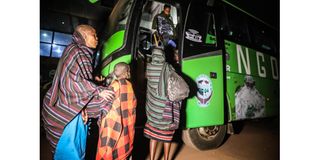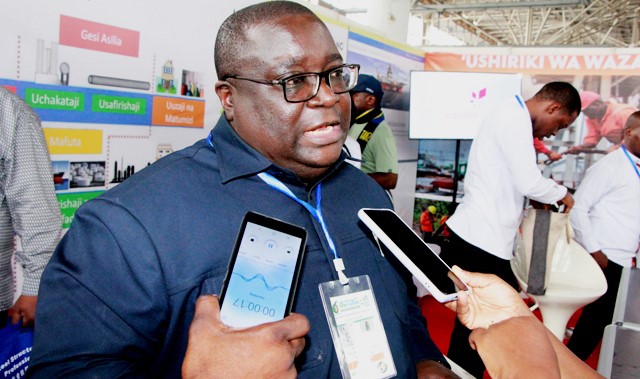Another 228 residents voluntarily relocate from Ngorongoro

What you need to know:
- Since the voluntary relocation process began in June 2022, some 1,627 households with 9,778 people and 40,051 livestock have already relocated from the Ngorongoro Conservation Area.
Dar es Salaam. A total of 58 households with 228 individuals, and 350 livestock on Friday, relocated from the Ngorongoro Conservation Area to Msomera Village and other selected areas in the districts of Monduli, Meatu, and Simanjiro.
Since the voluntary relocation process began in June 2022, some 1,627 households with 9,778 people and 40,051 livestock have already relocated from the Ngorongoro Conservation Area.
In a statement to the media, during the send-off of the 19th group of the second phase of people relocating from the Ngorongoro Conservation Area, Project Manager for the Ngorongoro Relocation Flora Assey said that, of the 58 households that relocated this weekend, 30 households with 151 people and 235 livestock are moving to Msomera Village.
She noted that 28 households with 78 people and 115 livestock are heading to other chosen areas in Monduli District in the Arusha Region, Meatu in the Simiyu Region, and Simanjiro in the Manyara Region.
Bidding farewell to the group on behalf of the Ngorongoro District Commissioner, District Administrative Secretary Mr Hamza Hussein Hamza said that the continued response of residents to voluntarily relocate helps reduce human activities within the conservation area, mitigates challenges faced by residents living with dangerous wildlife, and addresses issues such as lack of freedom to own vehicles and engage in economic activities, as well as restricted movement within the conservation area after midnight.
“We greatly commend the decision to relocate to allow for conservation activities. The government has provided essential services in the new areas, such as schools, health centres, water, cattle troughs, communication, electricity, quality housing, as well as farming and grazing lands. As the relocation process continues, I assure those who have not yet decided to relocate that the government will continue to provide social services and will adhere to the principles of law, regulations, procedures, and human rights during the implementation of this process,” added Hamza.
A representative from the NCAA Conservation Commissioner, Senior Assistant Conservation Commissioner Gloria Bideberi, outlined that the government, through the NCAA, continues with the process of educating, registering, and relocating willing residents.
“Once a resident registers and their property is assessed, the payment procedures are completed quickly, and within two weeks, the resident is relocated from within the conservation area,” she said.
Commissioner Bideberi also added that alongside the relocation of willing residents, conservation and tourism activities continue to thrive, the natural vegetation in the areas where people have moved from is already beginning to recover, and both domestic and international tourists are continuing to visit the attractions within the conservation area.
Speaking on behalf of the voluntarily relocating residents, Elizabeth Saiboko from Nainokanoka Village said that she chose to relocate from the conservation area to gain more freedom and seek a better future for her children since, in Ngorongoro District, conservation laws restrict certain economic activities such as farming, construction of permanent houses among others.





